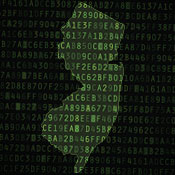82 percent of IT leaders consider security a top priority
January 26, 2015Summary: Tech Pro Research’s latest report shows how the technology landscape will evolve over the next three years, identifying the products and vendors that will stay relevant, and those that will become obsolete.
By Teena Hammond |

Technology is no stranger to change. Finding out how the technology landscape will evolve, and which products and vendors will stay relevant, as well as what companies and IT departments will do to stay on top of the game and embrace change, is what IT leaders need to know in order to make the right technology decisions.
Tech Pro Research conducted an online survey in September to find out what is predicted for the future of IT. The resulting report, IT Leaders’ Tech Predictions for 2015-2018, gleaned results from 418 survey respondents. CXOs and non-CXOs were polled, and the results compared to get their views on what the next three years will bring. The opinions of the two groups were largely the same, but some interesting insights can be gleaned from where they differed, showcasing business leader priorities as well as those in the various fields and trenches of IT.
Key findings include:
- Improving security, lowering costs, improving applications to match business processes and project management are company priorities.
- Increasing productivity through technology and improving efficiency and business processes are key issues for IT departments.
- Moving data and services to the cloud is seen as important (more so by CXOs), but there is also a level of dedication to in-house systems and servers, which is based on a certain degree of skepticism.
- Cloud computing turbulence is expected and a push to on-premises software may take place.
- The Internet of Things is strongly expected to take off.
- There is more faith in the future of Linux desktops than in the possibility of Apple surpassing Microsoft in the enterprise.
- Security, mobility and big data are the top three technologies to watch.





